News Search
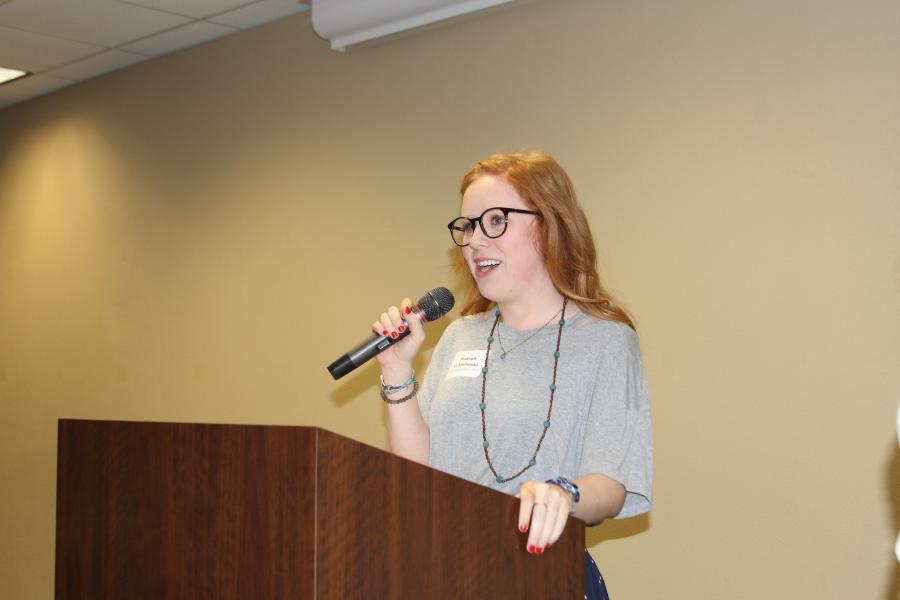
Coming to Baylor from Freeport, Texas, Haleigh Culverhouse grew up with parents who greatly value social justice and operate a nonprofit organization which supports women at risk for or recovering from human trafficking. Their support, as well as a focus on mental health and self-care within her family, helped open her eyes to a career in social work.
When asked how she felt about receiving the Spirit of Social Work Award, Haleigh said she was “surprised” and “honored.” She also had a sizeable list of people she owed thanks to throughout her social work journey.
[...]
Haleigh interned at Waco Center for Youth this past spring, where she cared for adolescents with varying mental health diagnoses. She worked under the supervision of a therapist and met individually with girls at the center to talk them through their thoughts and feelings before they were to meet with other staff members. She also planned and lead group therapy sessions
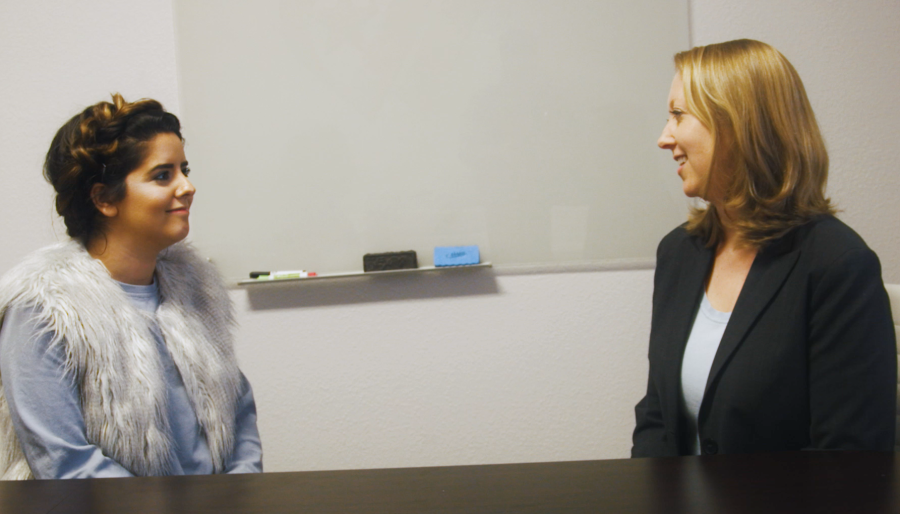
Victoria came a long way, both educationally and geographically, to the Garland School of Social Work (GSSW), where she received her MSW in May. Victoria is from Atlanta, GA and studied theology as an undergraduate at Oral Roberts University in Tulsa, OK.
Victoria was named the 2018 MSW Spirit of Social Work award winner, and her experience at the GSSW was greatly shaped by her internship opportunities.
During her first year, Victoria interned with Tri-Cities Ministries, a network of interdenominational churches united to care for local communities around Bellmead, Lacy Lakeview, and Elm Mott, TX. Victoria was charged with launching a case management program, including training volunteers and beginning to see clients, in order to better meet the long-term needs of those within the Tri-Cities communities.
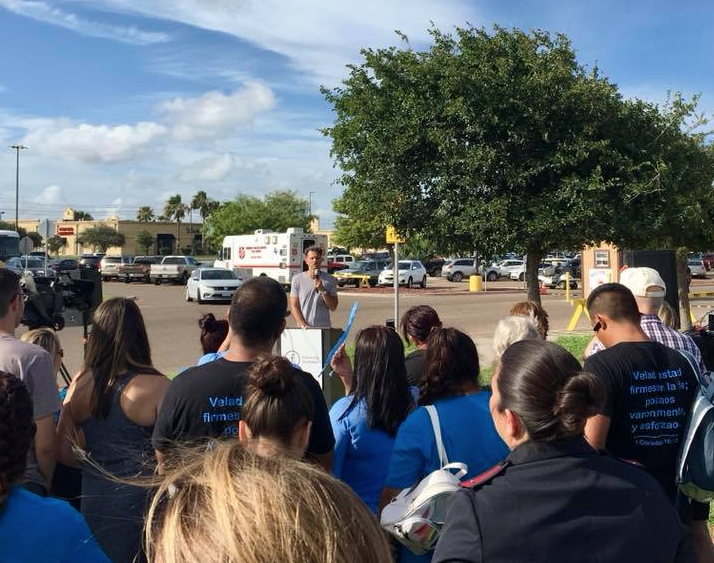
Last Sunday we drove nearly 500 miles from Waco to Brownsville, Texas, to pray. When we got there, what we really wanted to do was sneak through the fence, over a wall and through a window of the repurposed, former Walmart used to house children forcibly separated from their migrant parents.
We wanted to sit on the floor and hold babies, toddlers and preschoolers in our laps and wait with them until their mamas could come. We wanted to hear the names and listen to the stories of every child inside that facility. We wanted to shake the guards at the entrance by the shoulders and remind them that these are babies – children – someone else’s very best, most precious gift. We wanted to ask how on earth they could just stand there.
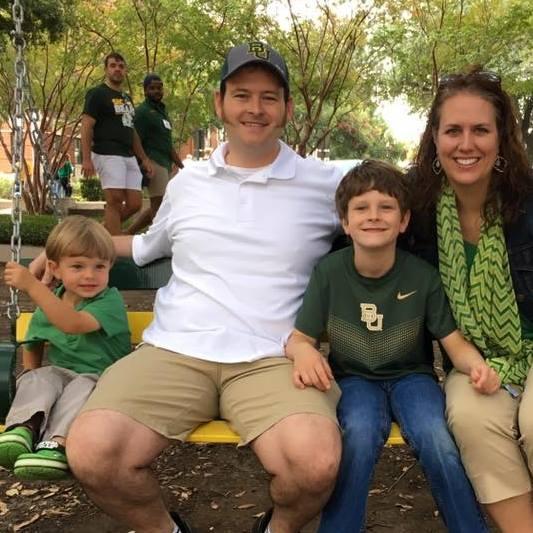
“What if you could change the system so the women you worked with [at the Christian Women’s Job Corps] were never in their situations or circumstances in the first place?” Dr. Rob Rogers said, years ago in a meeting with an MSW Capstone student. “What policies could have been created to change the systems affecting them?” This helped to change the direction of that student’s life. This conversation helped plant the macro social work seed in the heart of the Garland School of Social Work’s 2018 Alumna of the Year, Dana Smith, and that seed has only grown and flourished for nearly 15 years!
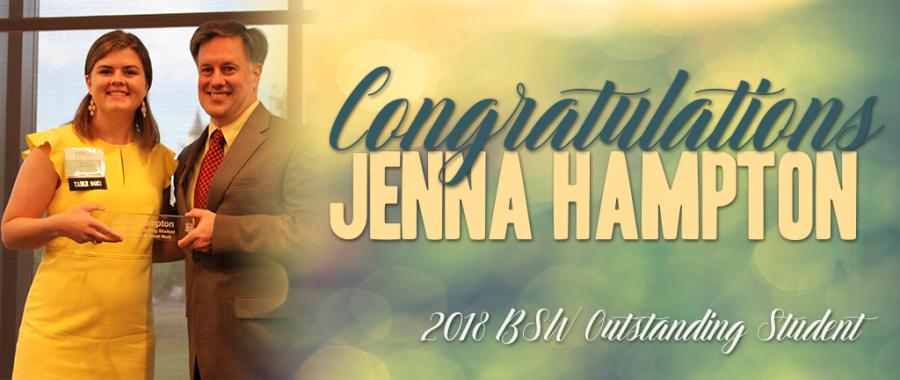
“You really have to find what you’re passionate about, and people who are passionate about the same things.” That’s exactly what Jenna did when, after a few meetings with Baylor’s career services, she found her calling to social work. Since discovering that calling, Jenna has realized her interest in the macro aspect of social work. Dr. Holly Oxhandler, Garland School of Social Work’s associate dean of research, opened up that door for her and was especially helpful in aiding Jenna through her journey. Within the macro aspect, Jenna’s focus has been at the intersection of social and economic issues.
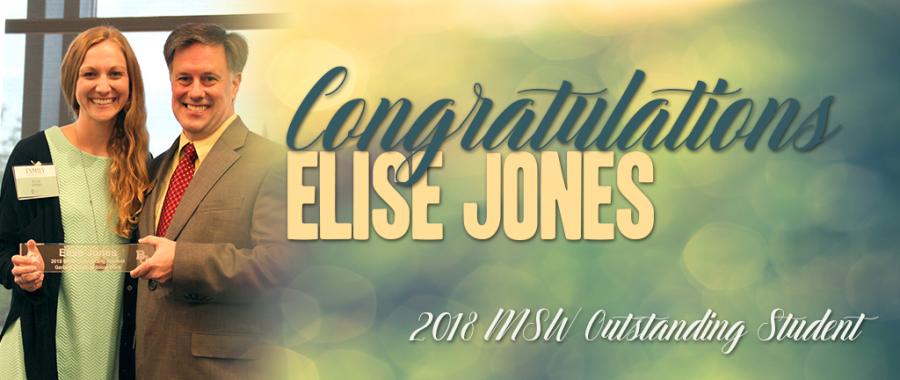
Congratulations to our 2018 MSW Outstanding Student: Elise Jones. From Oklahoma to Norway to Houston, Texas, Elise Jones has called many places home. It wasn’t until she started attending Lutherhill Ministries Camp in La Grange, Texas that she found where she belonged, which propelled her in a new direction of life.
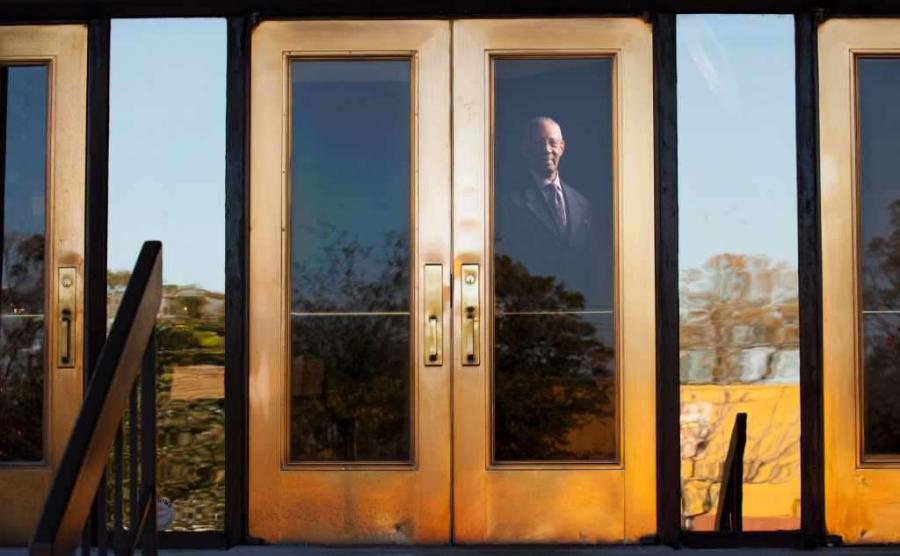
A few years ago, in memory of Founding Dean Diana Garland and as a way to honor her work, the Garland School created the Diana R. Garland Legacy Award. This year, we honor the School’s dear friend, Houstonian Rev. William “Bill” Lawson. In 1957, the Rev. William “Bill” Lawson, joined the Baylor Religious Hour as a guest preacher. The BSU leadership went about planning for the worship service as they had most Wednesdays that fall...
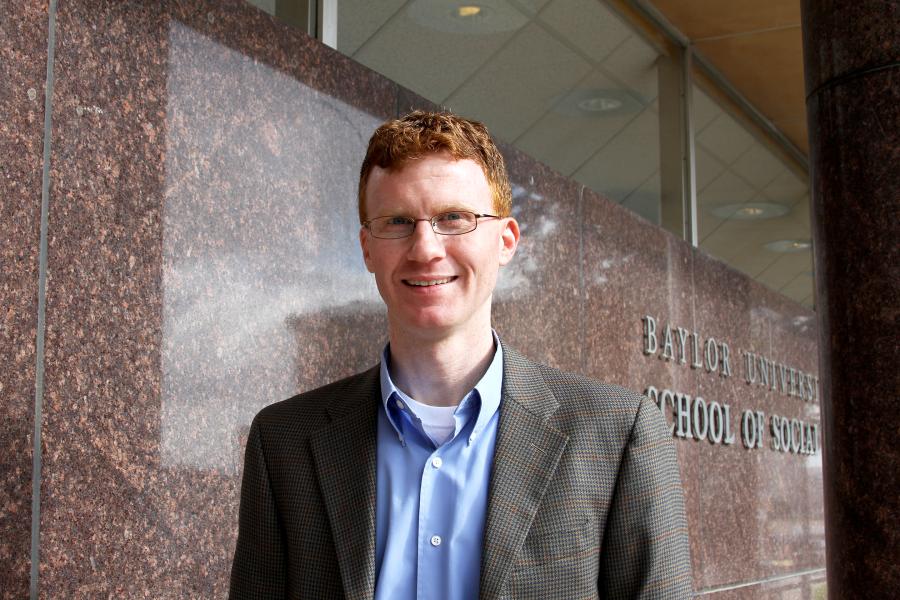
Many believe the idea that the most segregated time of the week is when Sunday church services take place. GSSW professor Dr. Clay Polson along with Baylor Department of Sociology professor Dr. Kevin Dougherty are interested in seeing how multi-cultural churches are changing this notion.
They recently published a joint research article, “Worshiping across the Color Line: The Influence of Congregational Composition on Whites’ Friendship Networks and Racial Attitudes.”
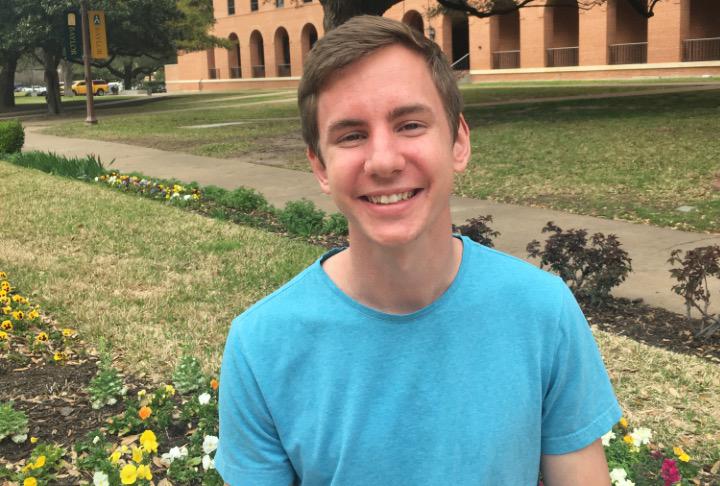
Often, being a transfer student at a new university can be a culture shock and come with its share of difficulties adjusting; however, for senior BSW student Jeremiah Moen, his background as a transfer student has helped him continue to dive into his passions and grow as a future social worker.
Jeremiah started his college education at San Jacinto College in southeast Houston. He was taking general courses at the time and had not decided on a specific career path. After a year and a half, Jeremiah’s father suggested that he take a semester to decide what he wanted to major in. He told Jeremiah to take a class in each of the major subjects he was interested in to help decide. Jeremiah took courses in elementary education, engineering, calculus, and a counseling class.
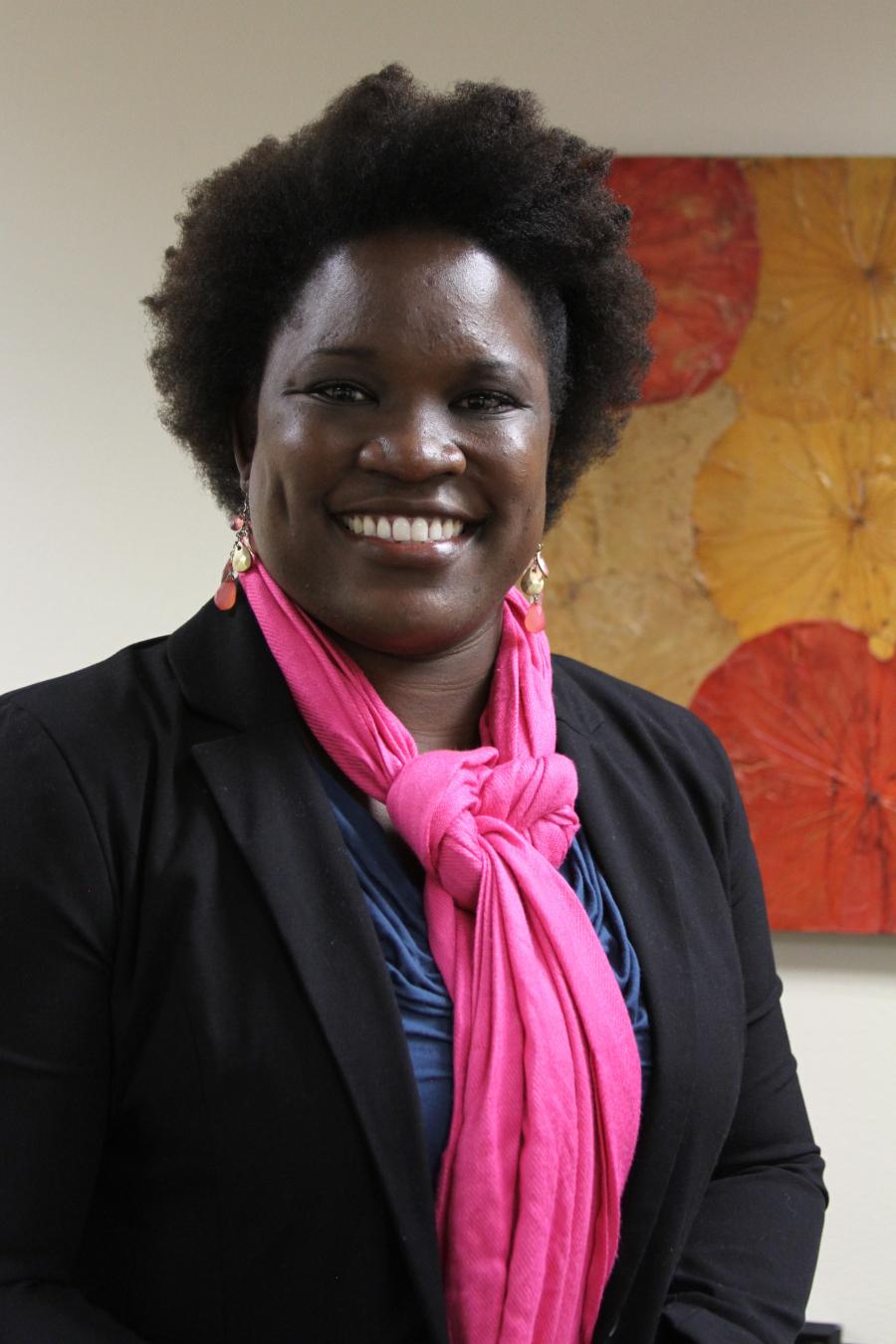
Baylor alumna Liz Ligawa loves impacting individual lives and communities, everywhere she goes, so pursuing a career in social work was a no-brainer. She recently received her Master of Social Work and a Master of Divinity. She now serves as the Director of Community Engagement at Prosper Waco, an organization that strives to make true social impact in the city of Waco, raising the quality of life for Waco’s marginalized community.
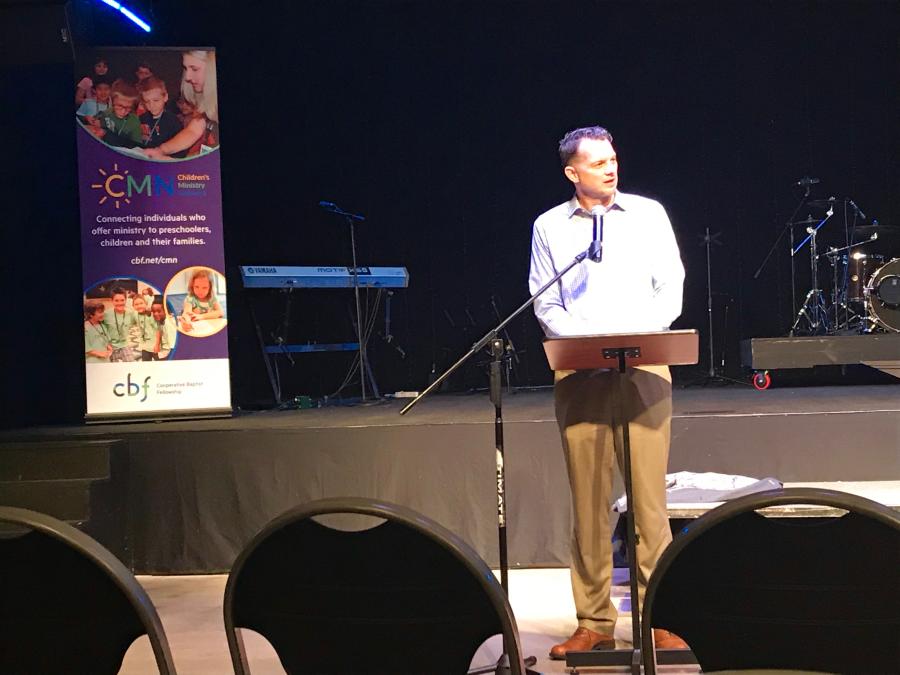
ChurchWorks, the Cooperative Baptist Fellowship’s (CBF) annual discipleship/spiritual formation conference, recently brought ministers from all across the nation to Trinity Baptist Church in San Antonio, Texas. The focus was on “Congregational Wellbeing,” led by Dr. Jon Singletary, dean of the Diana R. Garland School of Social Work at Baylor University.
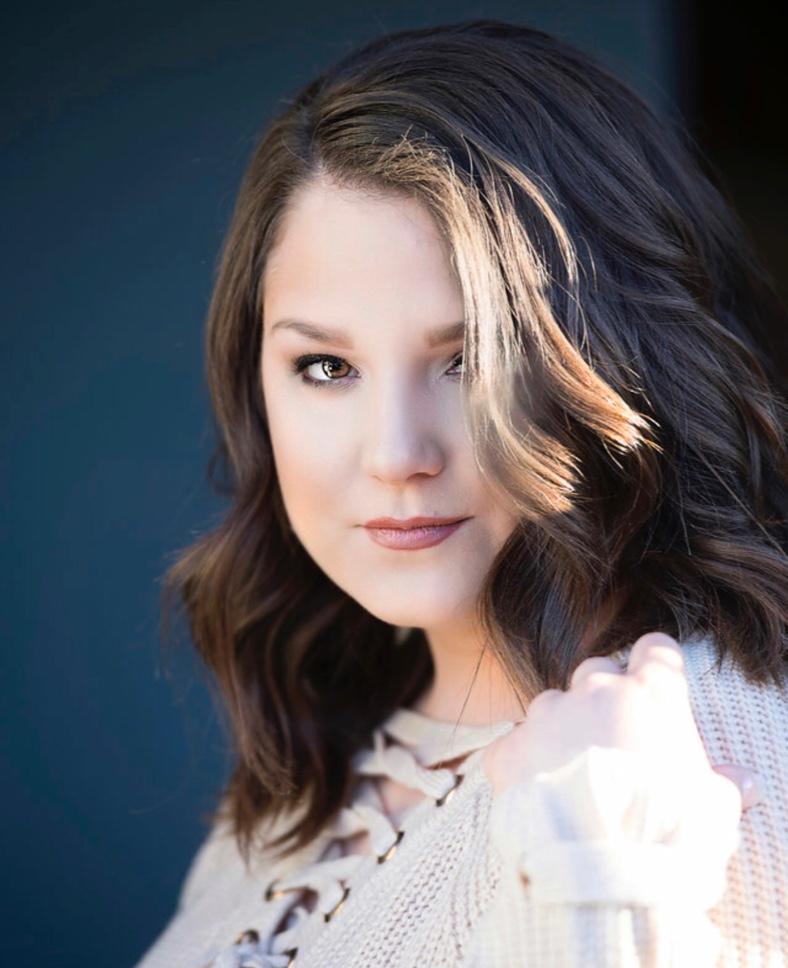
Students often come into a class wondering what it is their professor wants them to learn, but Dr. Helen Harris encourages students to be more personally invested in her courses.
“It’s really important, if students are going to learn, that they engage with their own passion around the topic,” Dr. Harris said. “I have a syllabus that has course objectives, but I don’t know how meaningful those really are to students. One of their first assignments in any class I teach is to write their own course objectives for this course. [I ask] ‘What do you want to take away from this course and how will you know whether, and to what extent, that has happened?’”
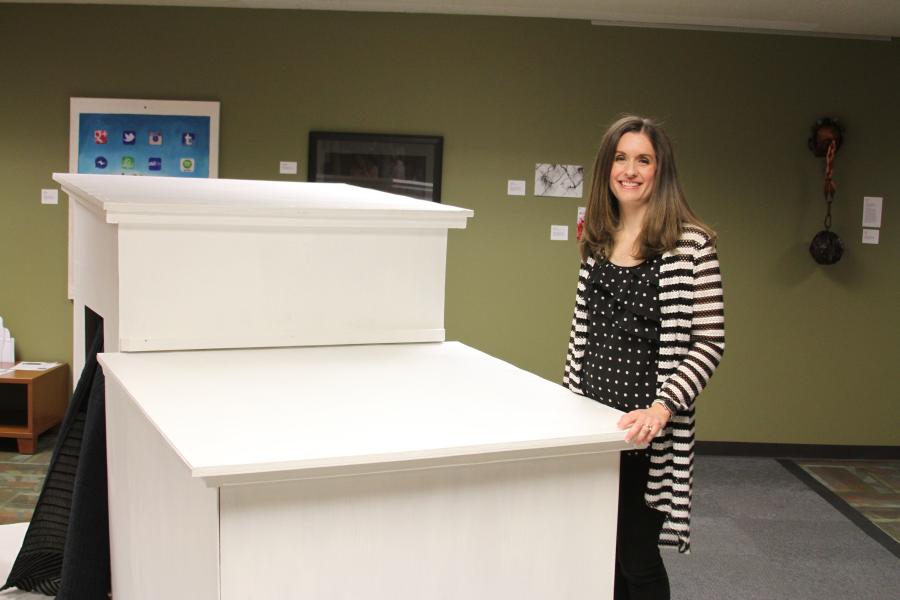
Austin artist Amie Stone King is proud to present her first art installation, Artifacts of Human Trafficking, at the Garland School of Social Work.
King first studied theatre as an undergraduate, then received a Masters of Art Museum Education. She has worked for years at various art museums, but found she wanted to do an exhibit on her own outside of a museum setting.
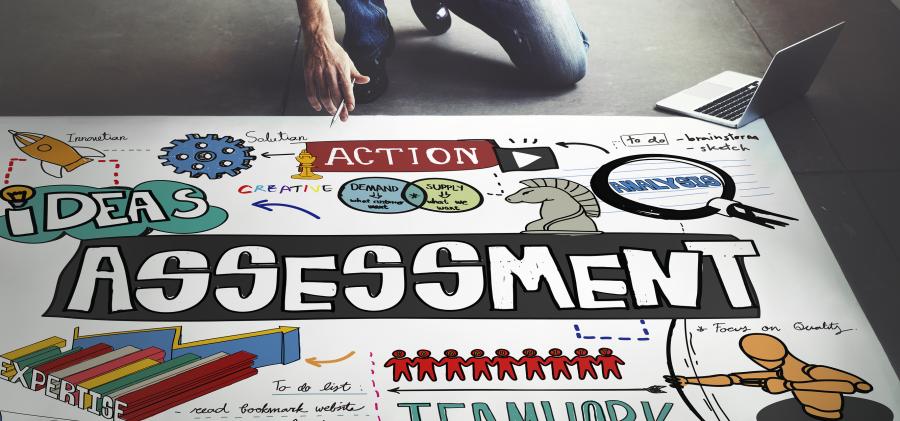
Each year, many students have the opportunity to take what they are learning in the classroom at the Garland School of Social Work and go into local communities to make an impact through asset-mapping initiatives.
What is asset mapping, you might ask? Asset mapping is a model of community development where a group goes into a community or organization and takes inventory of what strengths and resources it has. Through this process, students look at what is good and how those assets can be used to make an impact, as well as what could be changed to make a community or organization even better.
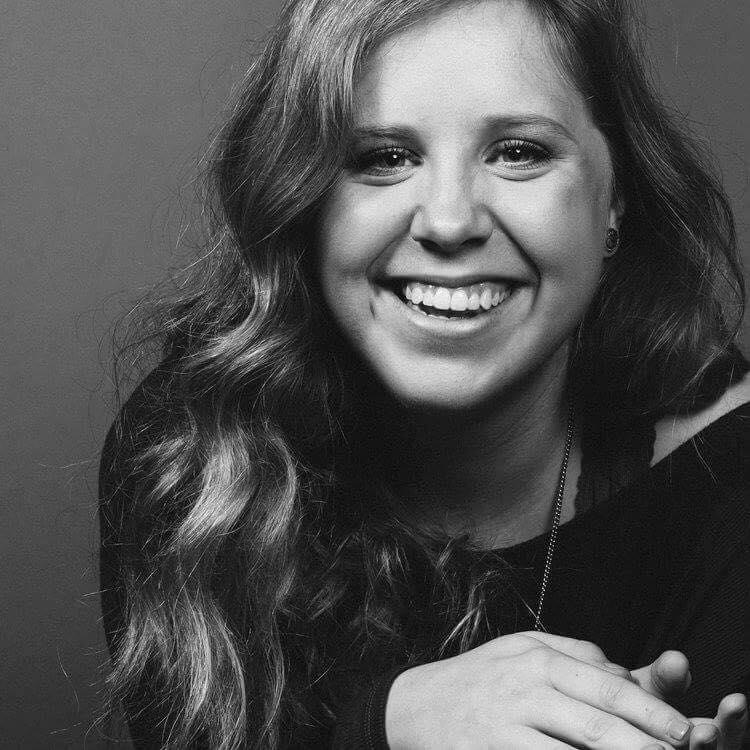
With parents who own a nonprofit agency that supports women who are at risk for or recovering from human trafficking, it is no surprise senior BSW student Haleigh Culverhouse came to Baylor to study Social Work. Growing up, she knew she wanted to help people like her parents but was not sure what she wanted to study. Eventually, while on a mission trip to India, she found her answer–– or rather, it found to her.
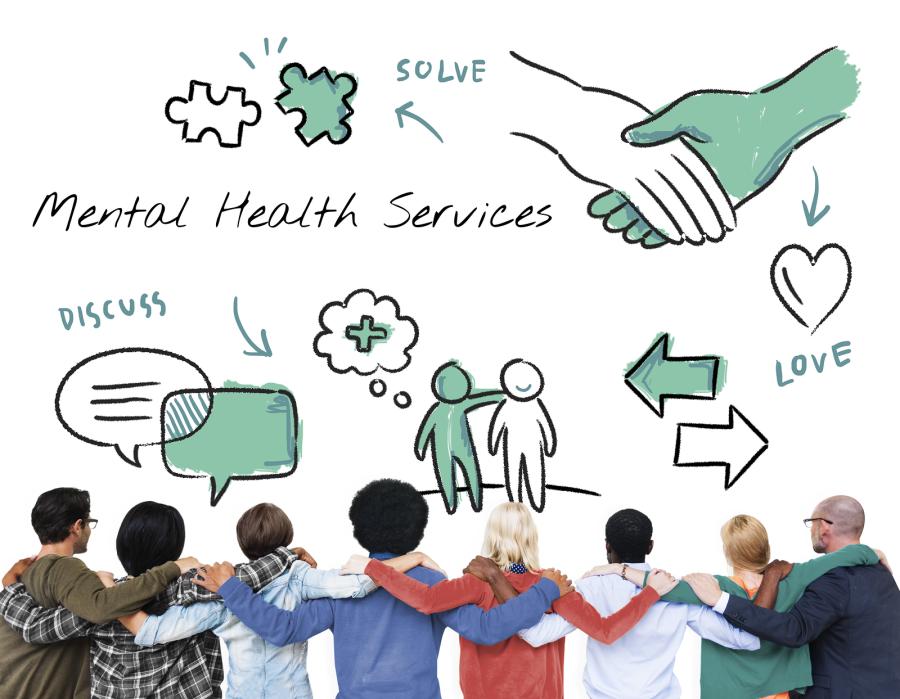
DALLAS—Baylor University faculty and staff joined colleagues at Baylor Scott and White in Dallas on Saturday to host the Third Annual Gil Taylor Behavioral Health Symposium. The event focused on “The Impact of Behavioral Health Issues Across Generations.”
Baylor Interim Provost Dr. Michael McLendon described how the event served to “strengthen our collective response in addressing behavioral health needs around the state.”
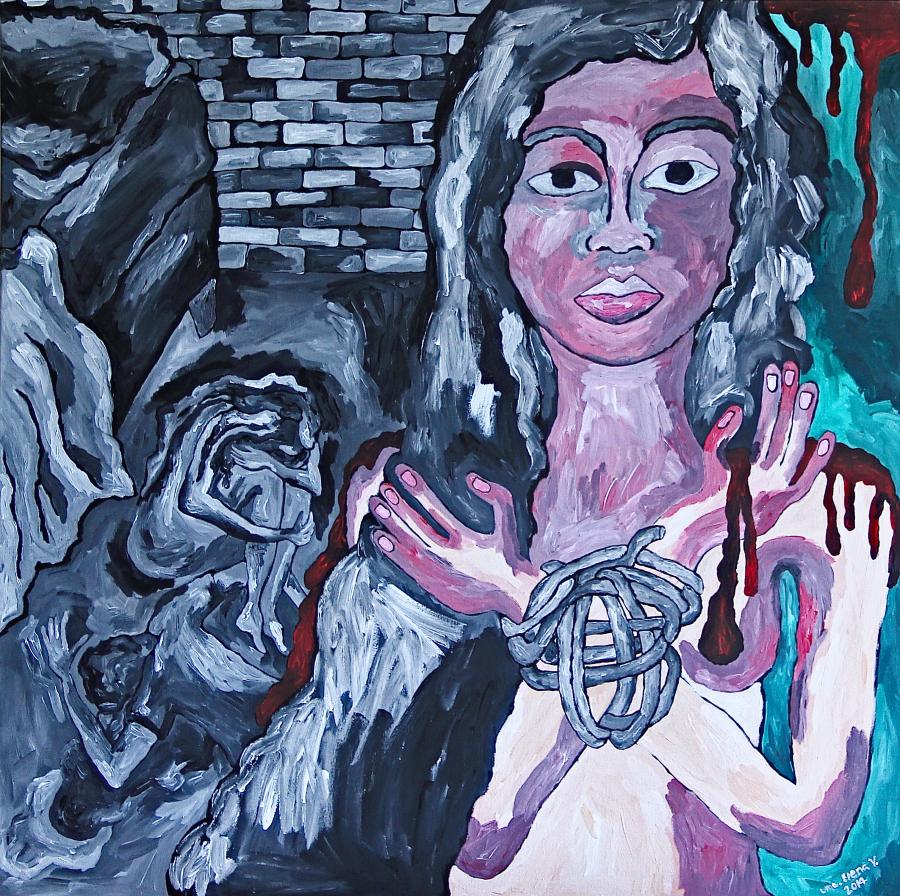
There are just some things we don’t talk about…
Baylor University’s Diana R. Garland School of Social Work presents: Artifacts of Human Trafficking.
And you’re so numb by that point, no, not even numb-that’s not the right word, you’re gone, you’re soulless. They own you, but not just your body, they own who you are, the deepest parts of you. –Anonymous
We invite you to shine a light into the darkness through art as we explore the pervasive sex trafficking industry in the United States through Artifacts of Human Trafficking, an installation created by Austin artist, Amie Stone King, with accompanying juried, 2-D mixed media works from artists around the world based on the themes of desperation, isolation and deceit.
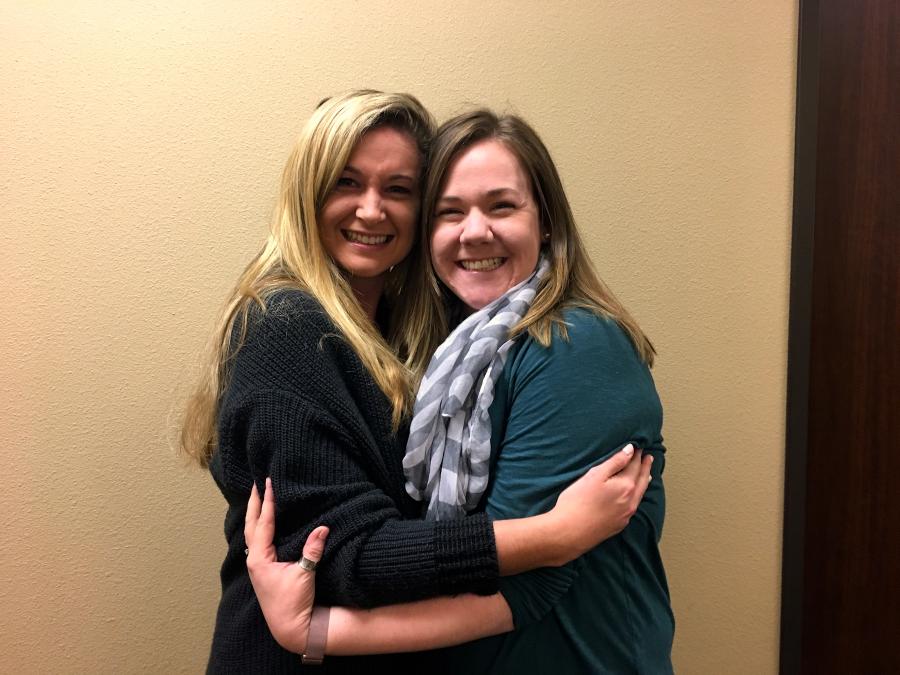
Kelsey Moffatt, a second-year Master of Social Work (MSW) student at Baylor, was awarded a 2017 Ima Hogg Scholarship in July. This scholarship awards social work graduate students in Texas $5000 to support their studies and encourage them in their passions for mental health service after graduation. Garland School faculty, including Dr. Holly Oxhandler, Kelsey’s mentor and advisor, easily recognized Kelsey’s strong work ethic in her research and her distinct passion for counseling and improving care for people with mental illnesses.
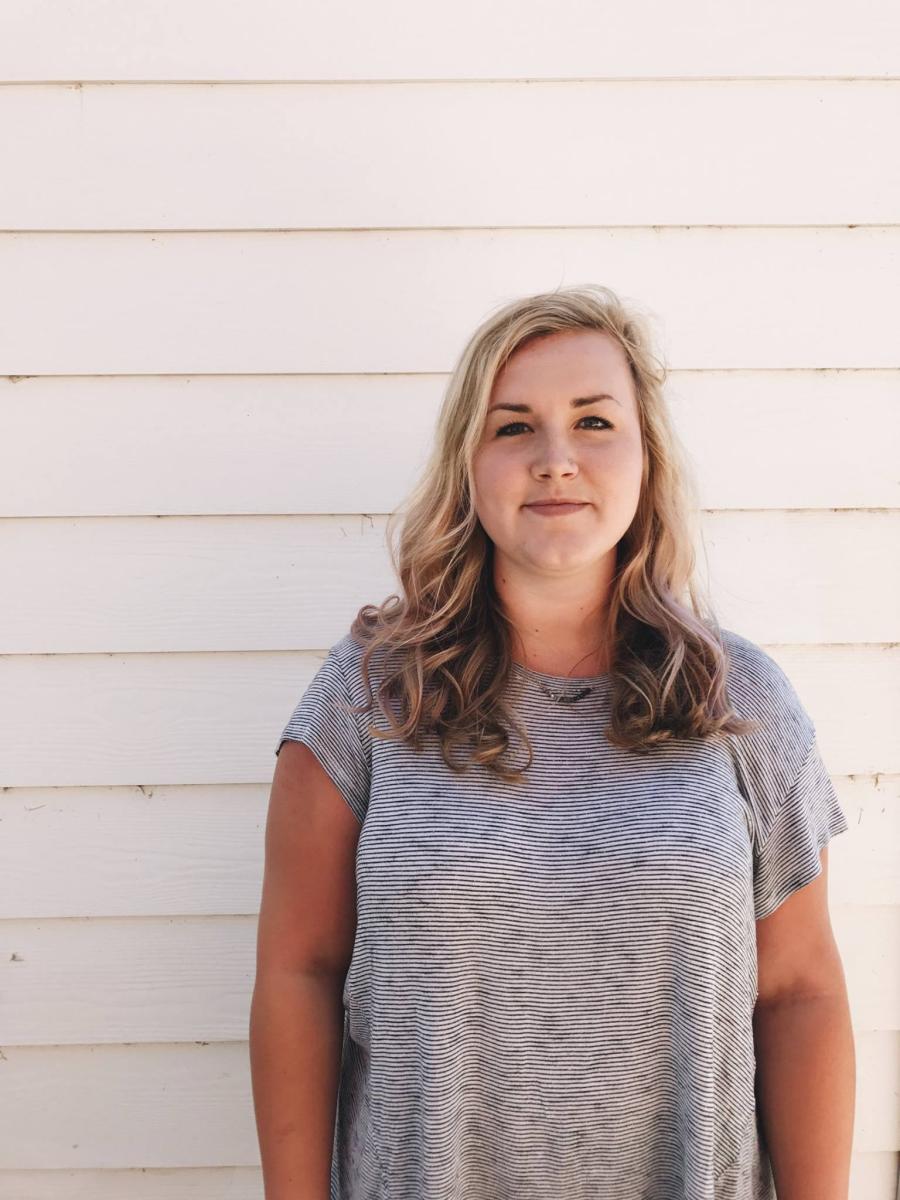
Growing up, BSW student Aimee Bennett was particularly concerned with issues of homelessness, poverty, and child abuse. Aimee came to Baylor as a speech pathology major, with her parents' encouragement, but eventually found that she wanted to pursue a career where she would develop more personal relationships.
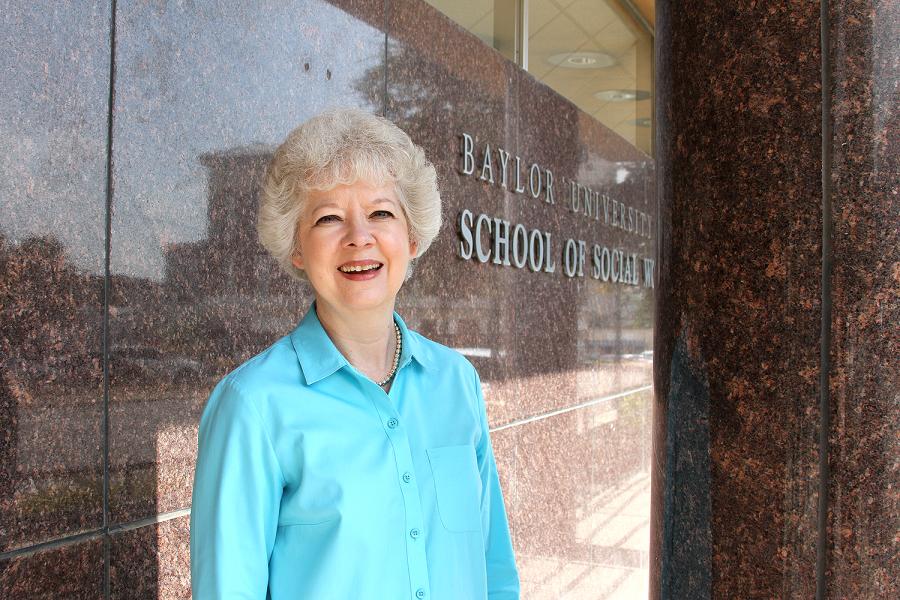
When you hear the word “giving” associated with a university, your mind might jump to financial donations, but Angela Bailey believes giving up her time is even more important. Angela has been at Baylor University for more than 30 years, and she now serves as the program manager for both the PhD and Global Mission Leadership programs at the Garland School of Social Work where she works directly with the programs’ directors and students. She has grown up serving wherever she is needed, especially in her church.
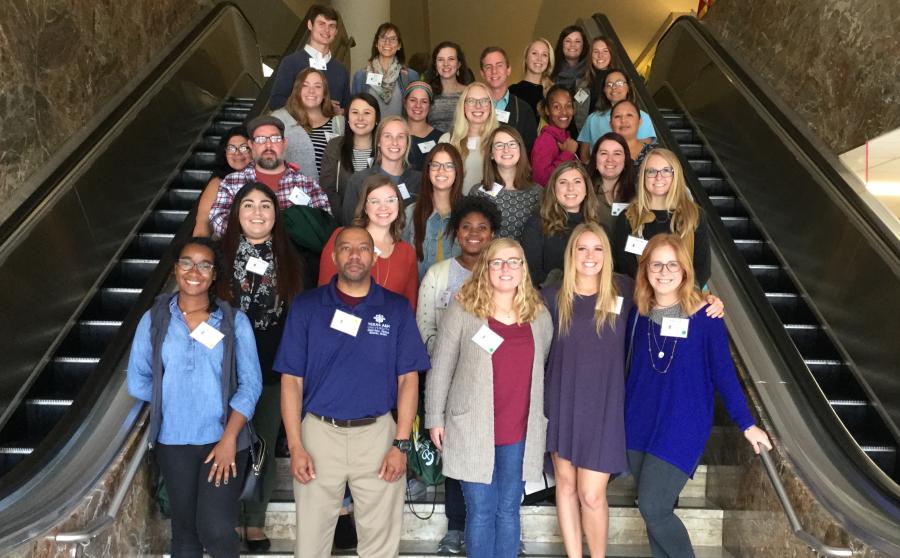
The Garland School of Social Work’s Master of Social Work (MSW) Preview Day in October gave prospective students a unique glimpse into the program and what their next few years could hold if they decide to pursue an MSW at Baylor University.
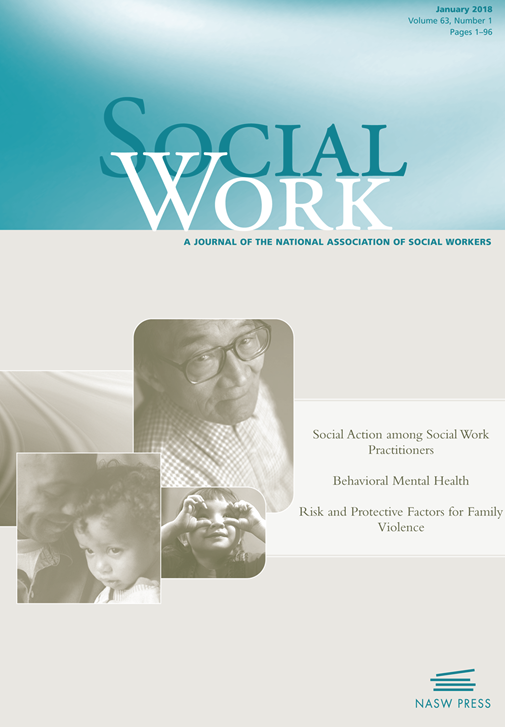
This article describes the religious and spiritual beliefs and practices among a national sample of 426 licensed clinical social workers (LCSWs). Given the significant role LCSWs’ intrinsic religiosity plays in whether or not they consider clients’ religion and spirituality (RS) as it relates to practice, it is critical that the profession best understands current LCSWs’ religious and spiritual beliefs, and in what ways these mirror or contrast those of the clients whom they serve.
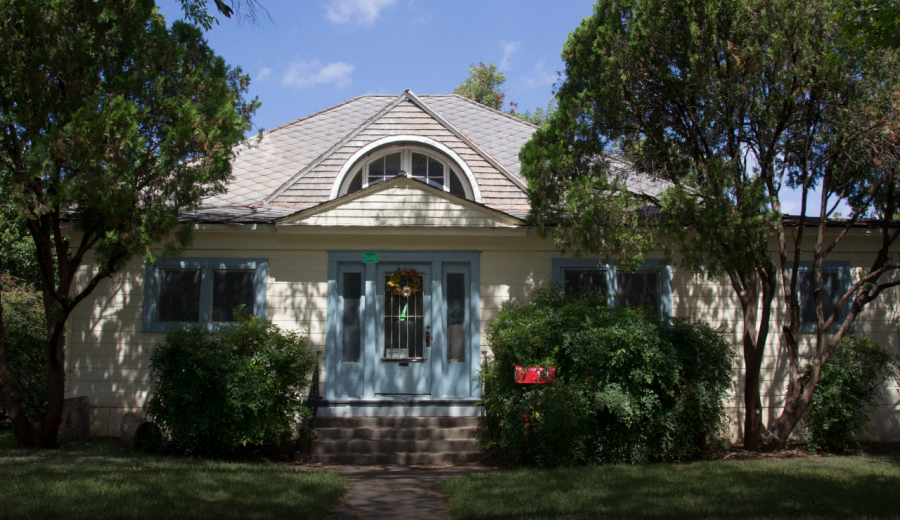
Kendall Ellis has embarked on a quest to discern her vocation. It began with studying for a career in medicine when she, and her undergraduate work at Georgetown College in Kentucky, changed direction. “I ended up with a French degree and a minor in biology,” says Ellis, 24. Language study sparked a passion for cross-cultural experiences and how societies view and process life. That led to a tantalizing glimpse into social work.
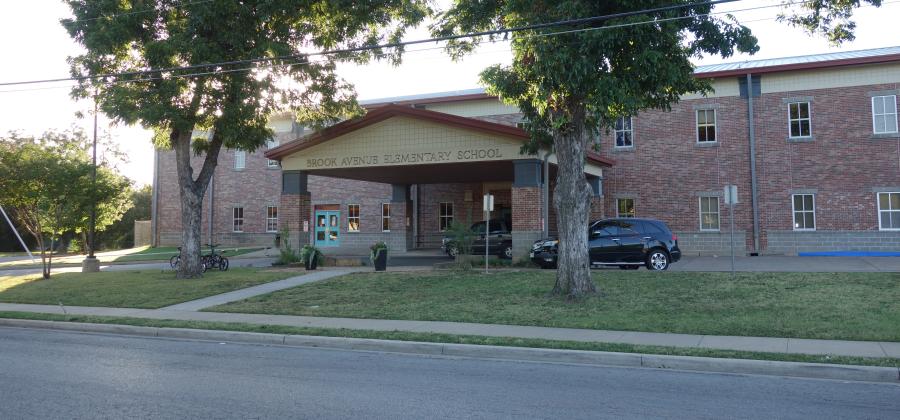
A neighborhood school. Each morning children are dropped off at the front entrance of Brook Avenue Elementary School and personally greeted by Brook Avenue staff as they make their way to their classrooms. Each afternoon, those same families are congregated outside of the school waiting to walk home with their children. This is what a neighborhood school looks like.
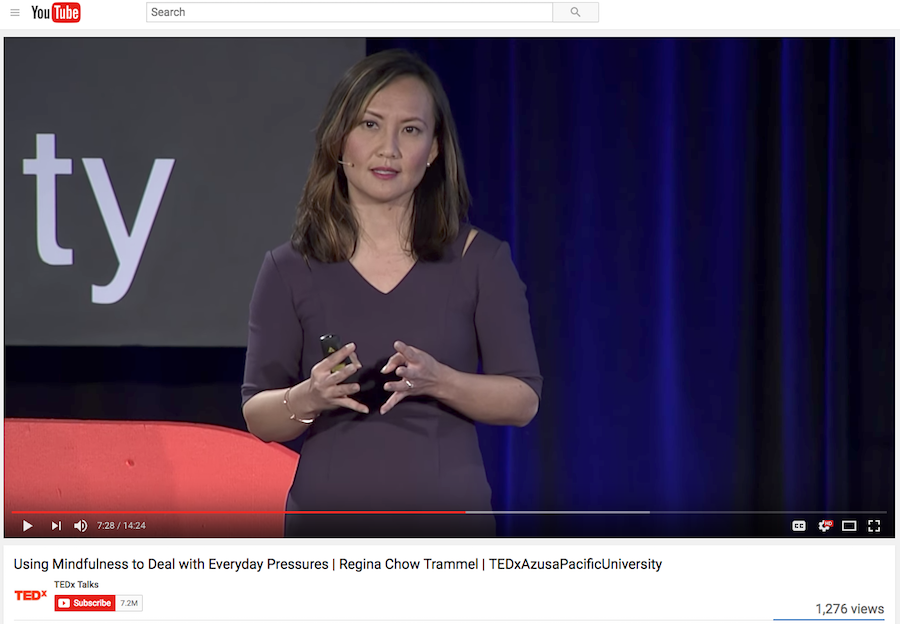
Our very first PhD graduate, Regina Trammel, PhD '16, recently presented a TEDx Talk on Using Mindfulness to Deal with Everyday Pressures.
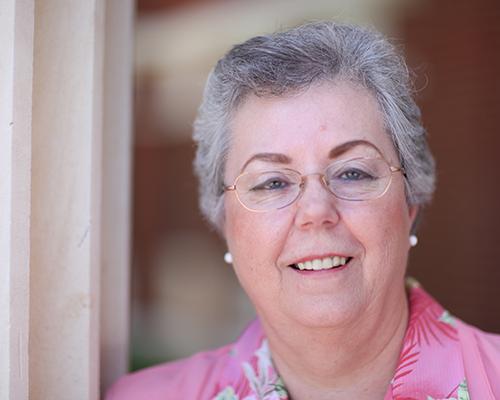
WACO—Try to talk with Gaynor Yancey about needs and deficits, and before long, she will steer the conversation toward a discussion of assets and opportunities. Ask her to conduct a community assessment, and where others see overgrown vacant lots, she sees available space churches can use to plant community gardens or develop neighborhood parks.
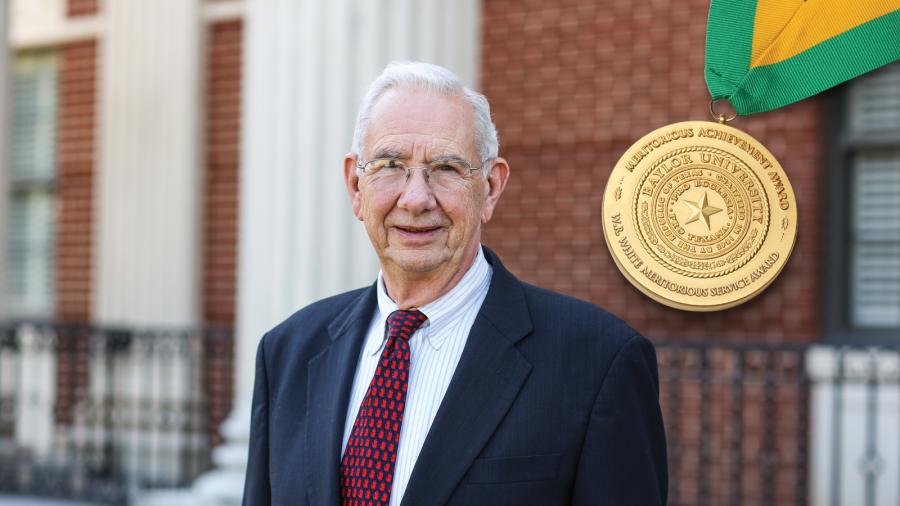
Dr. Preston Dyer, BA ’60, is an educator, a servant leader who developed Baylor’s social work program nearly a half-century ago, and recognized by peers as the “most influential social worker alive.” However, his most cherished accomplishment is his connection with former students. He appreciates when former Baylor students stop him on the street to tell him they grew from the Marriage and Family class Dyer and his wife of 57 years, Dr. Genie Dyer, BA ’59, taught together for 16 years.
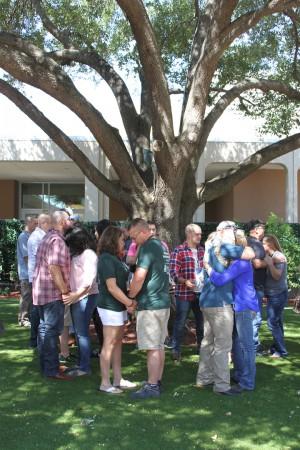
Service to others is a calling many social workers feel. Service to others through life-threatening situations is not usually part of it, though. Military and first-responder families deal with a unique set of circumstances that many civilians may not understand.
Serving to keep others safe sometimes comes at a cost ... ask almost any soldier, police officer, firefighter, paramedic or the spouse of one. Marriage can be hard enough for couples in any stage of life, but add in the stresses of deployment and life-and-death situations, and it just might be unbearable.
What a gift it is to move from the beautiful anguish of vocational liminality to a place where I feel confident to lead and to serve. I loved my first year serving as your dean. Having a year prior as interim was a nice launchpad for this opportunity. Having an amazing faculty and staff make the role pure joy. I spend more time planning, budgeting, and organizing, but I am still engaged in some research, looking at spirituality and leadership through the lens of the Enneagram. I am still teaching, this year a Human Behavior course with undergraduates who are just beginning their coursework in the social work major.
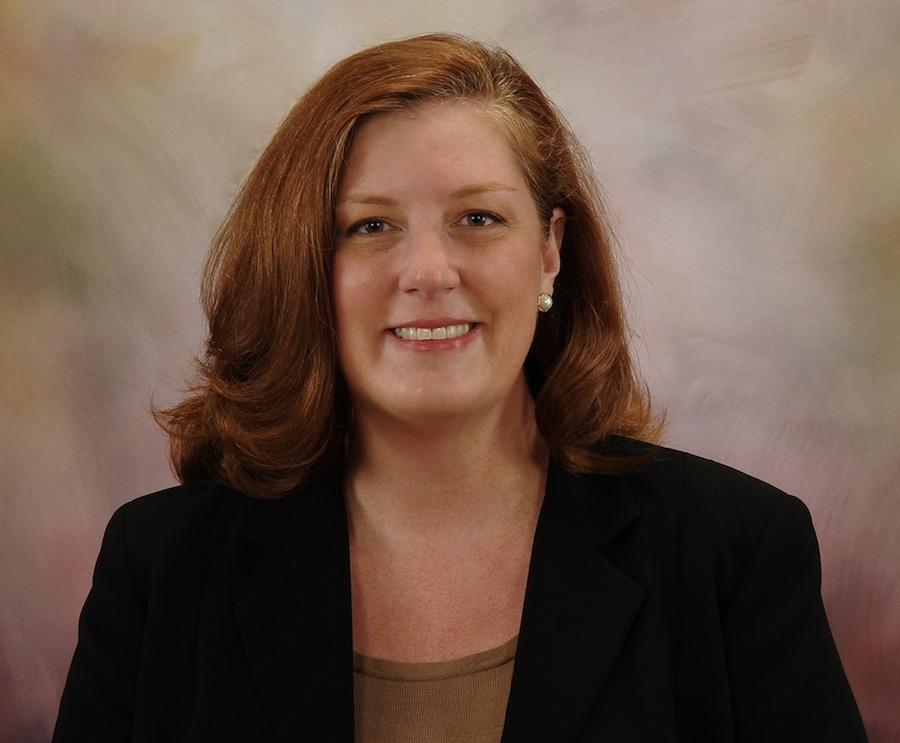
A study by a Garland School researcher gives voice to women who have placed a child for adoption and suggests changes to the options counseling process and policies that guide agencies and other adoption professionals.
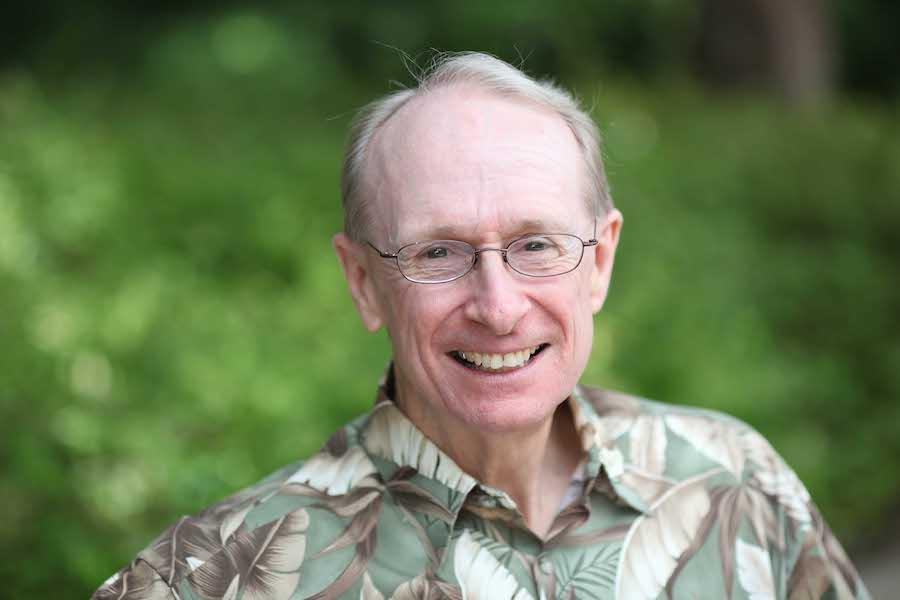
Congratulations to our Gerontology researchers for receiving an Honorable Mention 2017 Innovative Research on Aging Award from the Mather LifeWays Institute on Aging for their work on the following publication... "Work-life Stress and Career Resilience of Licensed Nursing Facility Administrators (LNFAs)" Myers, D., Rogers, R., LeCrone, H., Kelley, K., & Scott, J. (2016). Work life stress and career resilience on licensed nursing home administrators. Journal of Applied Gerontology.
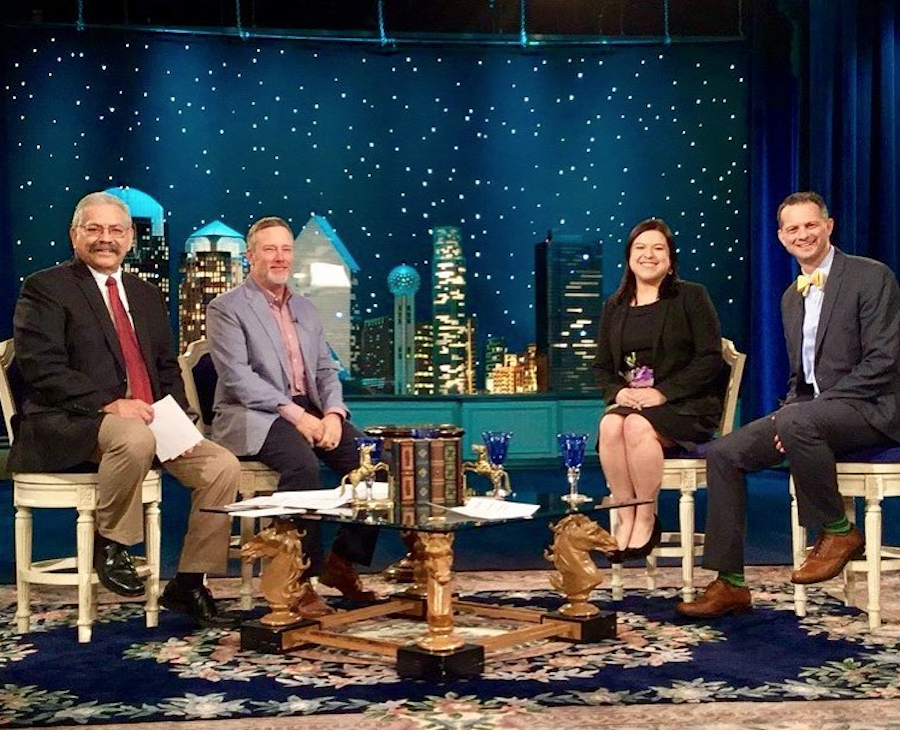
Dean Jon Singletary and Dr. Crystal Diaz-Espinoza, director of Enrollment Management, filmed an episode of "Raising the Standards," a program filmed at the TBN Studios in Dallas.
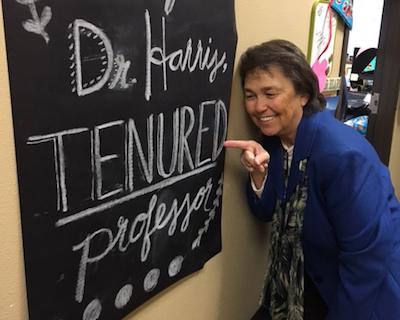
In March, the Garland School of Social Work announced that Baylor University had granted tenure to our Dr. Helen Harris! The GSSW was even able to surprise her with a celebration just after learning the good news from Dean Singletary.
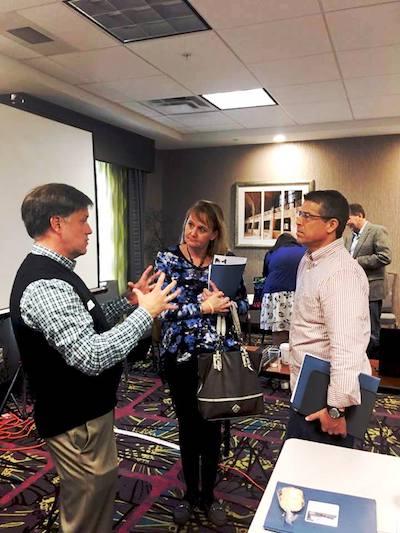
Associate Dean Dr. David Pooler offered practical advice to help churches deal with clergy sexual misconduct in a recent blog post for the Baptist Women in Ministry blog.
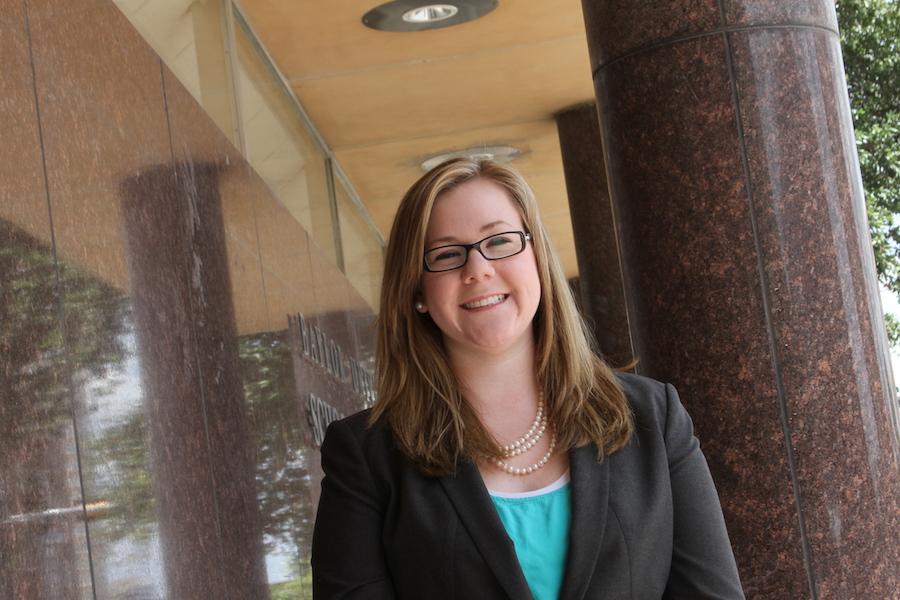
The National Association of Christian Social Workers featured Dr. Holly Oxhandler's research, "Integration of Clients’ Spirituality among Christians in Social Work" in the June edition of the their podcast.
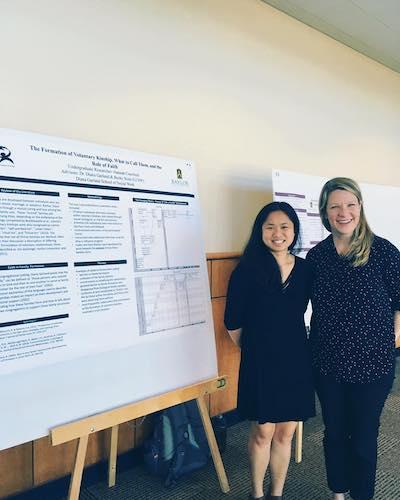
Hannah Crawford, pictured below at left, presented her research on voluntary kinship during URSA Scholars week at Baylor. Her topic was one of the last projects Diana Garland worked on with help from Becky Scott.
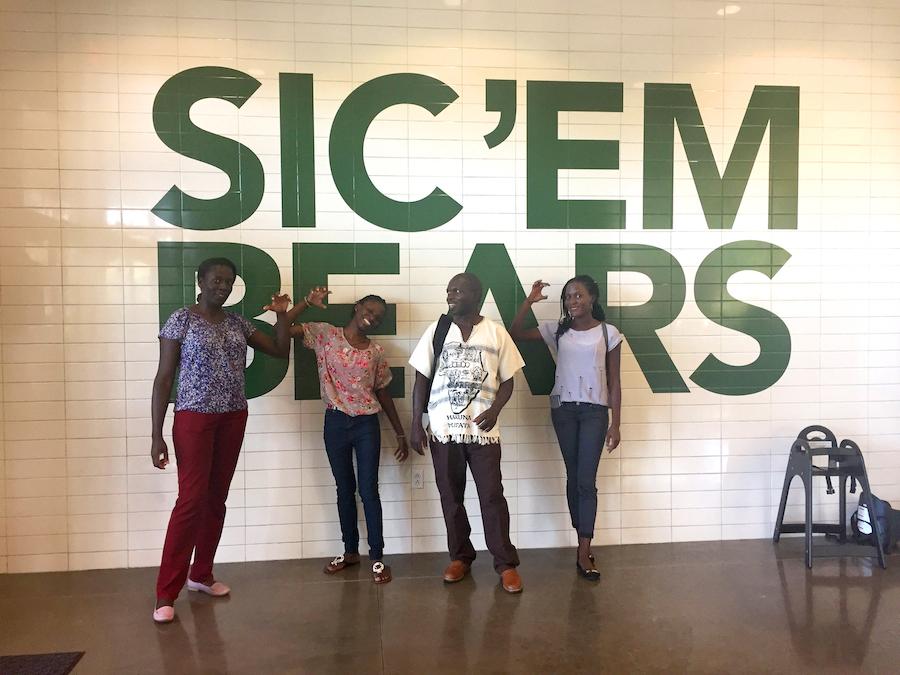
In August, a new cohort of students began their Global Mission Leadership journey at the Garland School. This group is our fourth cohort in this program, and we are already proud of the work these students are doing.
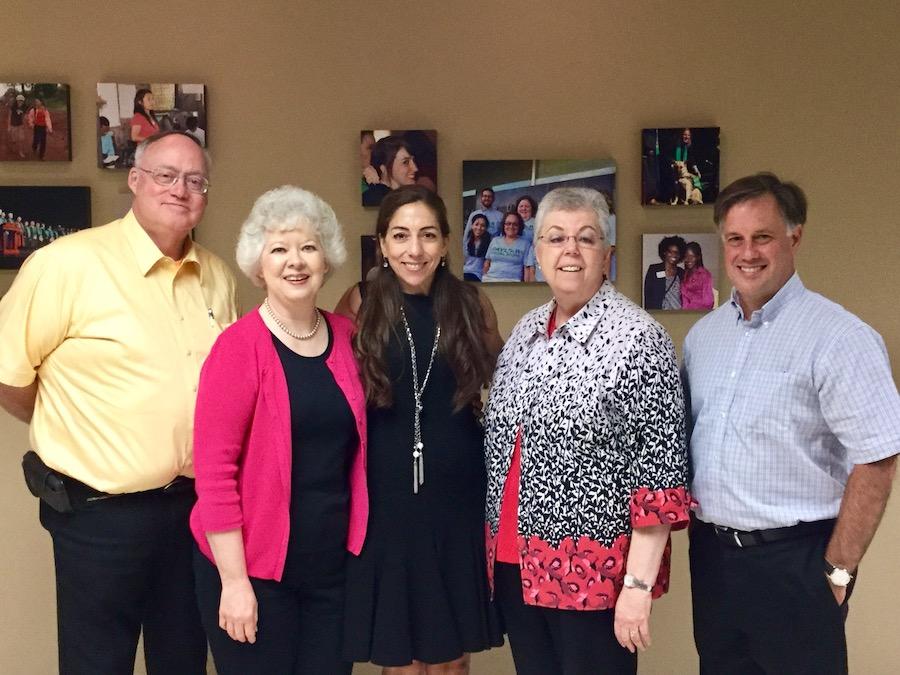
Two more students from our very first PhD cohort added new titles in front of their names this summer. Congratulations are in order two very special graduates, one in May and one in August ... DR. Erin Olson and DR. Lori Sousa!
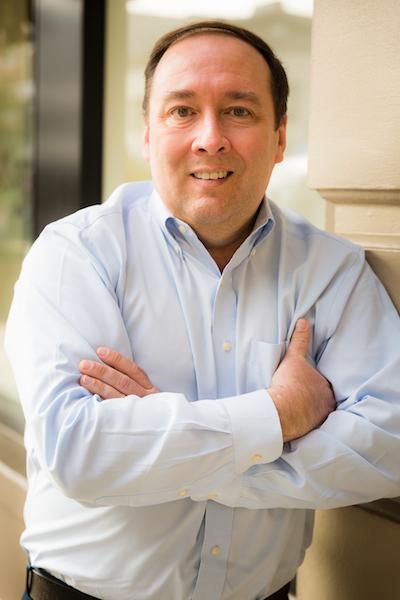
Tim Brown, MSW '03, was recently elected president-elect of the 2017 Board of Directors of the Association of Social Work Boards. He will serve one year as president-elect, two years as president and one year as past president. Tim was also named the 2017 NASW-TX Social Worker of the Year.
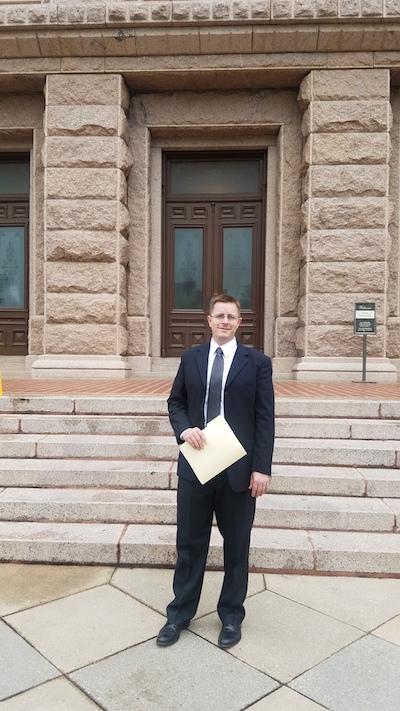
Rucker Preston, MSW ‘16, recently accepted the position of executive director at the Texas Christian Community Development Network (TxCCDN).
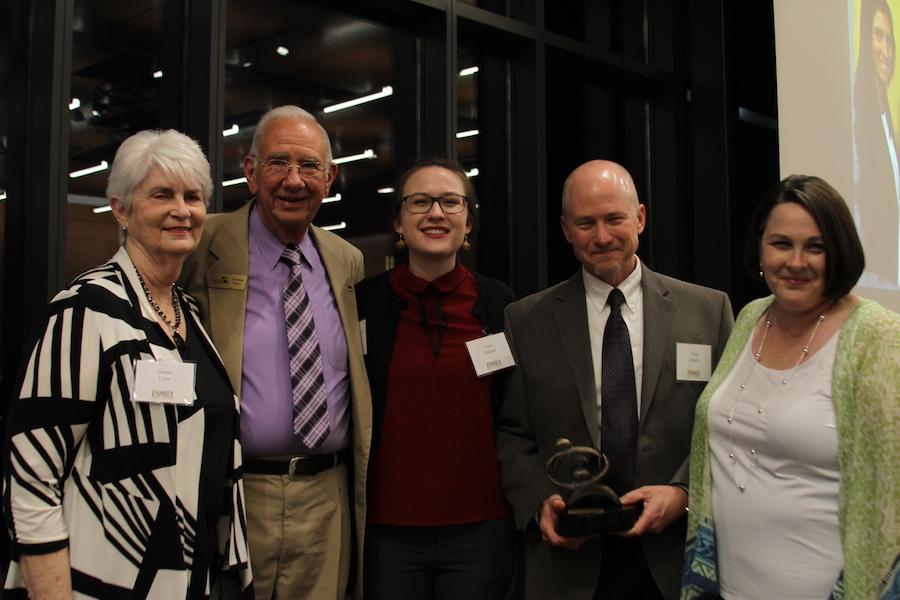
Greg Adam's story began in small-town Missouri, outside St. Louis, the second of four boys. Greg came to Baylor as an undecided major thinking he would do church-related work. During his sophomore year, he was advised to take a career-decision workshop which revealed he should find a career which would “make a difference.” With that thought in mind, Greg set up a meeting with Dr. Preston Dyer to learn about social work, and he realized the more he learned, the more he thought it just fit.

With Hurricane Harvey a few weeks in the past, and Hurricane Irma barreling through soon after, there is great need for volunteers to come in and render aid to those who were affected by these devastating natural disasters. Certainly, there will be much to clean up environmentally in the coming weeks, months, and even years, but there is also a great need for aid when it comes to helping those affected by the storm deal with the trauma they have faced.
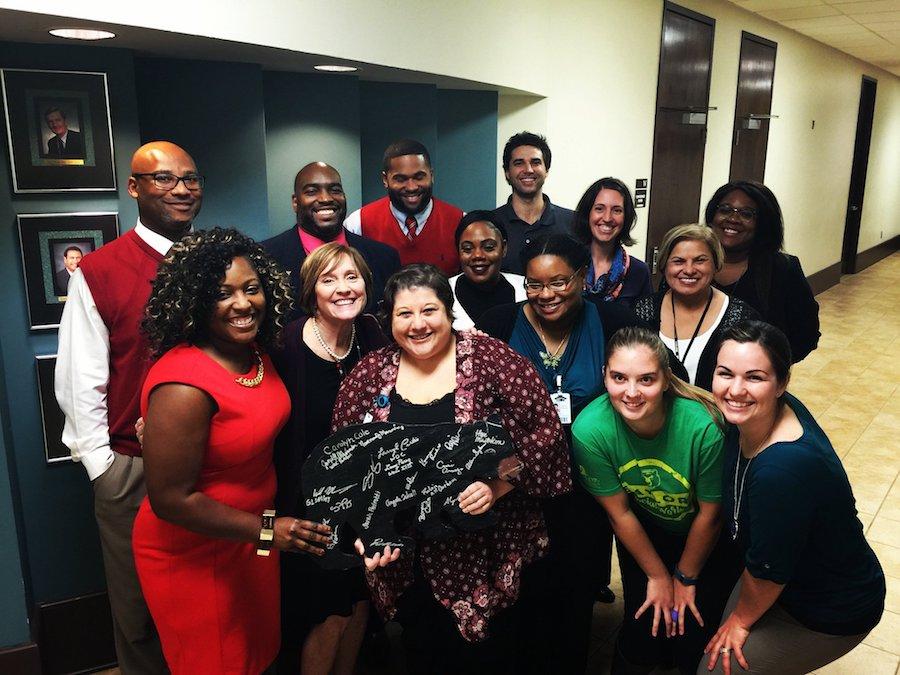
The Hogg Foundation for Mental Health has awarded the Garland School of Social Work a $235,000 grant to expand programming aimed at addressing the mental health and wellness needs of students in the Waco Independent School District. The grant will be used to address the needs of students placed in disciplinary alternative education programs.
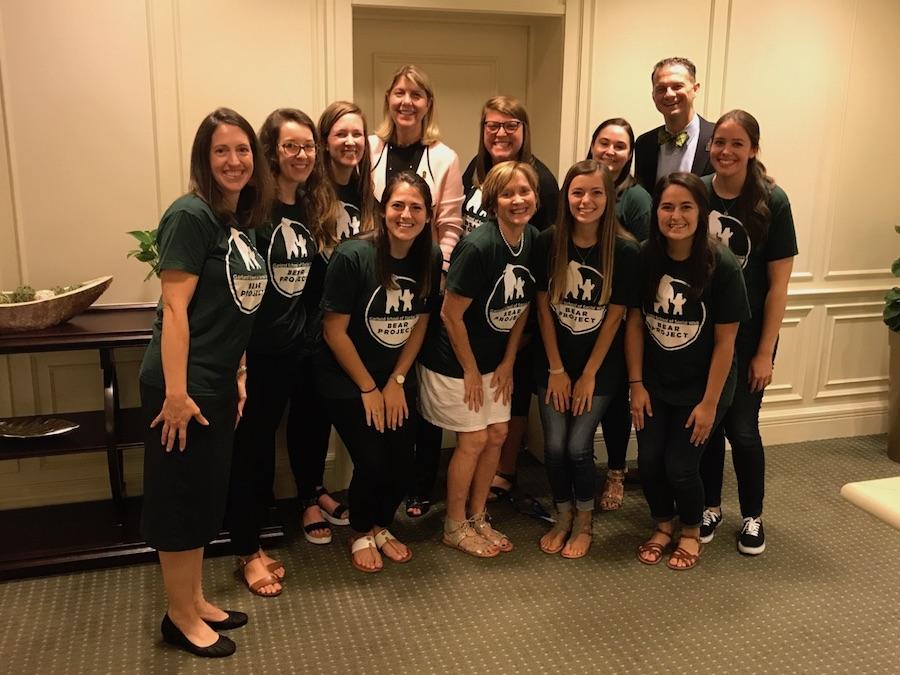
The Garland School of Social Work and the Waco Independent School District formed a multi-faceted partnership to help WISD students develop emotional resources that can lead to academic success through the BEAR Project. BEAR stands for Be Emotionally Aware and Responsive, and its interns provide personalized attention to help students build skills that can help them stay in the classroom and learn.
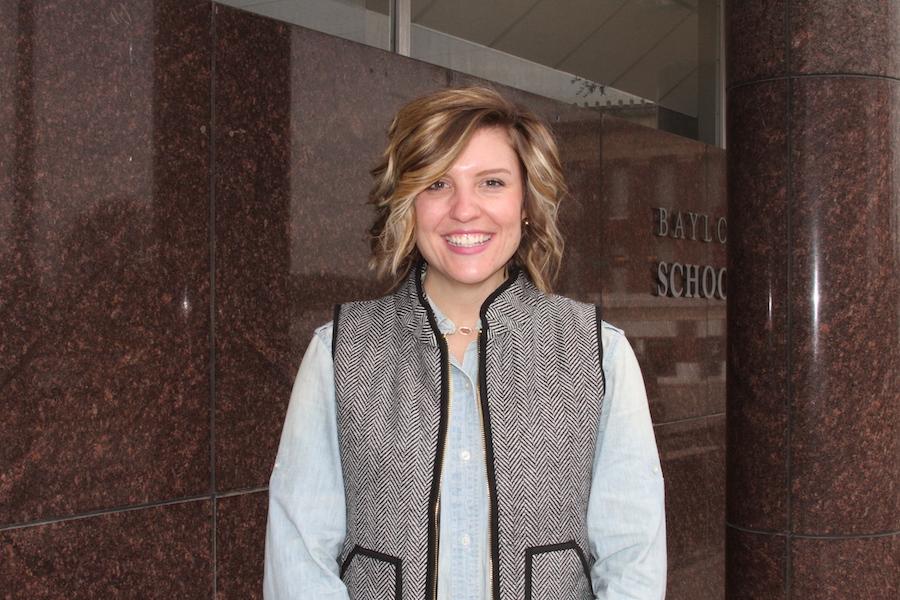
In the last year, the School recognized the importance of bolstering enrollment, career, and alumni services to follow prospective students from the beginning of the process all the way through graduation and beyond. With this in mind, the GSSW welcomed two new staff members in the Office of Enrollment and Alumni Services: Krysta Long and Emily Corntassel.
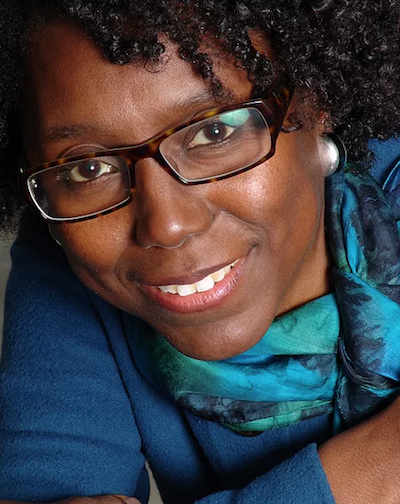
We have the pleasure of recently adding several new staff and faculty members to our family here at the GSSW. Dr. Stephanie Boddie joined as an assistant professor of Church and Community Ministries, while we welcomed Cheryl Pooler as a lecturer. Also, Katherine Diehl became our GML program Coordinator, Sarah Dorrel Ritter serves as both a full-time lecturer and the MSW program director, and Luci Hoppe was named the BSW program director. Sic 'em, School of Social Work!
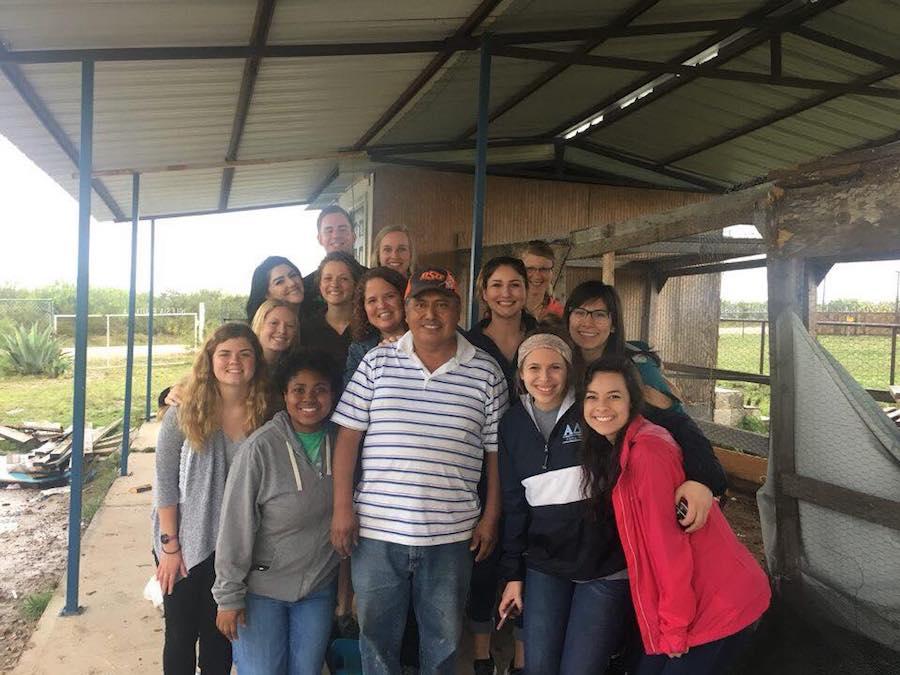
Jennifer Dickey from the Garland School of Social Work and Brian Thomas from the School of Engineering and Computer Science collaborated on a multidisciplinary approach to student education and social service, informed by the Christian faith. The team took 26 social work and engineering students to Laredo, Texas, to assess and support the services already being provided to persons who are migrating from desperate situations in
their countries.
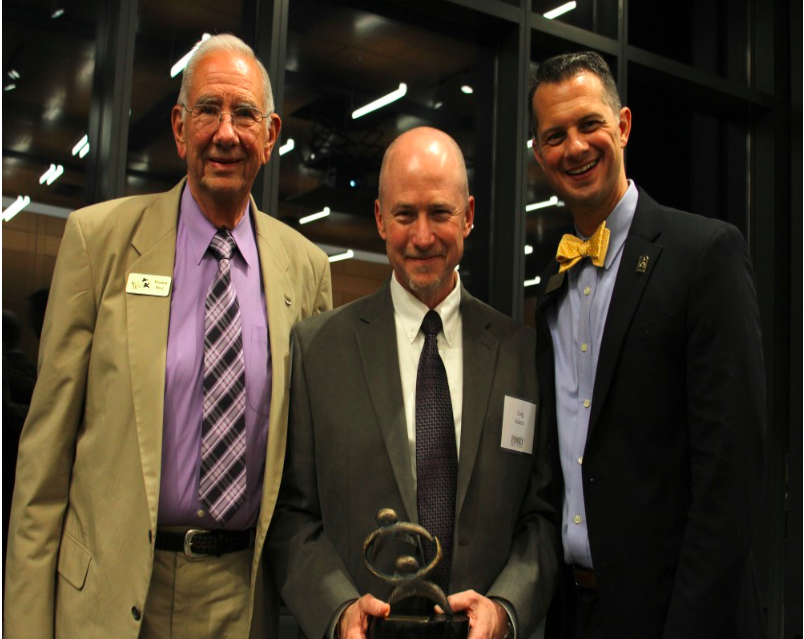
Greg Adam's story began in small town Missouri, outside St. Louis, the second of four boys. Greg came to Baylor as an undecided major thinking he would do church-related work. During his sophomore year, he was advised to take a career-decision workshop which revealed he should find a career which would “make a difference.”
With that thought in mind, Greg set up a meeting with Dr. Preston Dyer to learn about social work, and he realized the more he learned, the more he thought it just fit. Greg ended up double-majoring in social work and religion, graduated in 1985, went on to earn his MSW from the University of Missouri-Columbia, and has been “making a difference” ever since.